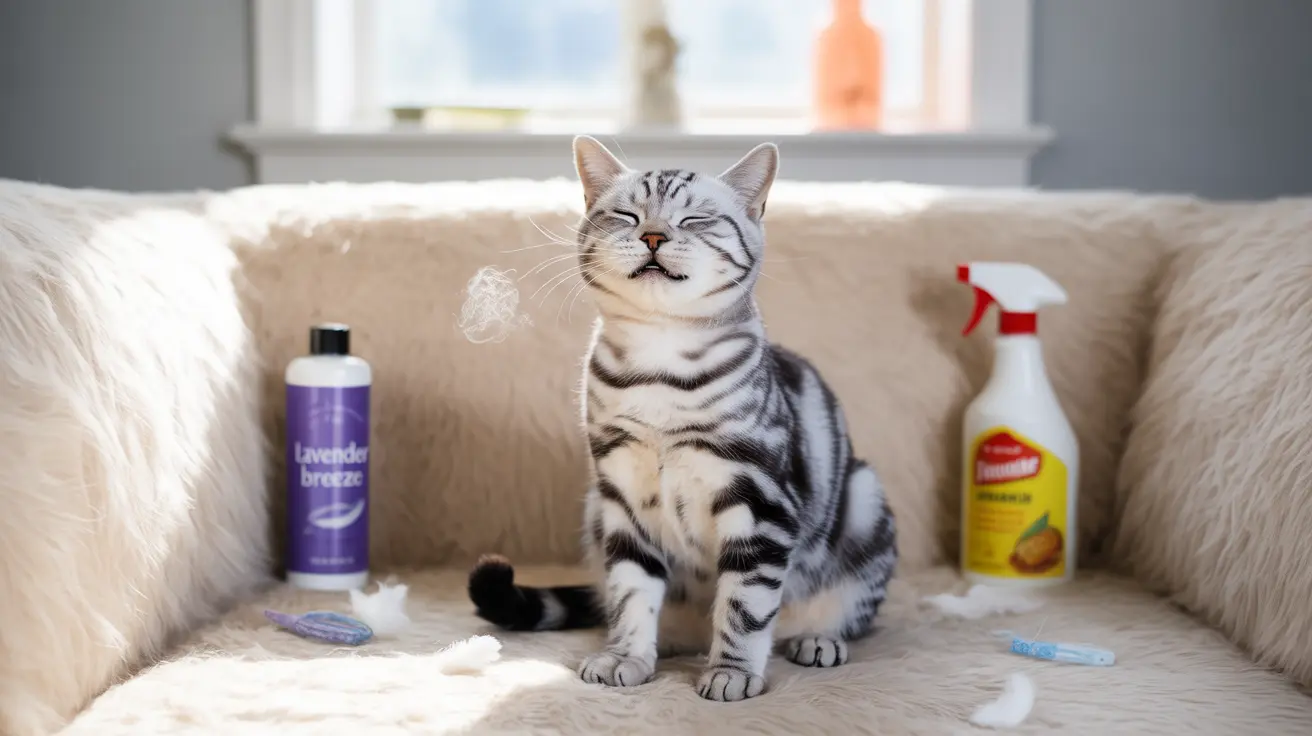Common Causes of Cat Sneezing
Upper respiratory infections (URIs) are the most frequent cause of sneezing in cats, with viral infections accounting for approximately 90% of cases. The primary culprits are feline herpesvirus and calicivirus, which can cause persistent sneezing along with other symptoms.
Environmental irritants also play a significant role in triggering sneezing episodes. These may include:
- Dust and pollen
- Cigarette smoke
- Cleaning products
- Perfumes and air fresheners
- Scented cat litter
Bacterial and Fungal Infections
Secondary bacterial infections often develop following viral infections, marked by colored nasal discharge. Less commonly, fungal infections can cause sneezing, particularly in cats living in specific geographic regions or with compromised immune systems.
Identifying Serious Symptoms
While occasional sneezing isn't usually cause for concern, certain symptoms warrant immediate veterinary attention:
- Persistent or violent sneezing
- Bloody or colored nasal discharge
- Difficulty breathing
- Loss of appetite
- Lethargy or depression
- Eye discharge or squinting
Diagnosis and Treatment Options
Veterinarians typically begin with a thorough physical examination and detailed medical history. Diagnostic procedures may include blood tests, nasal swabs, or imaging studies to determine the underlying cause of persistent sneezing.
Treatment Approaches
Treatment varies depending on the root cause:
- Viral infections: Supportive care and possible antiviral medications
- Bacterial infections: Appropriate antibiotics
- Allergies: Antihistamines and environmental modifications
- Foreign objects: Professional removal
- Chronic conditions: Long-term management strategies
Prevention and Home Care
Several preventive measures can help reduce sneezing episodes:
- Regular vaccination against common respiratory viruses
- Maintaining a clean living environment
- Using unscented cat litter
- Installing air purifiers
- Keeping your cat indoors
- Regular veterinary check-ups
Frequently Asked Questions
Why is my cat sneezing so much, and when should I worry?
Occasional sneezing is normal, but frequent sneezing accompanied by other symptoms like lethargy, loss of appetite, or colored nasal discharge requires veterinary attention. Persistent sneezing for more than a few days should also be evaluated.
How can I diagnose the cause of my cat's sneezing?
While only a veterinarian can provide a definitive diagnosis, observe your cat's symptoms, including the frequency of sneezing, type of discharge, and any accompanying signs. This information will help your vet determine the appropriate diagnostic tests.
What are the most common treatments for cat sneezing?
Treatments vary based on the cause but may include antibiotics for bacterial infections, antivirals for viral infections, or supportive care such as humidification and nasal decongestants. Your veterinarian will prescribe the most appropriate treatment plan.
Can allergies cause sneezing in cats, and how can I manage them?
Yes, allergies can cause sneezing in cats. Management includes identifying and removing allergens, using air purifiers, and possibly administering antihistamines under veterinary guidance.
How can I prevent cat sneezing through environmental changes and home care?
Maintain a clean environment, eliminate irritants like smoke and strong perfumes, use unscented products, ensure proper vaccination, and schedule regular veterinary check-ups to prevent respiratory issues.
Conclusion
Understanding cat sneezing is essential for every pet owner. While many cases are harmless and self-limiting, being aware of warning signs and knowing when to seek veterinary care can make a significant difference in your cat's health outcomes. Remember that prevention and early intervention are key to maintaining your feline friend's respiratory health.






